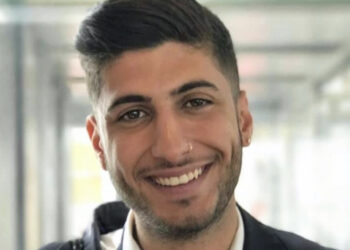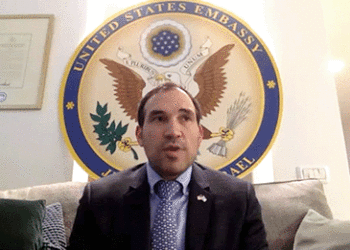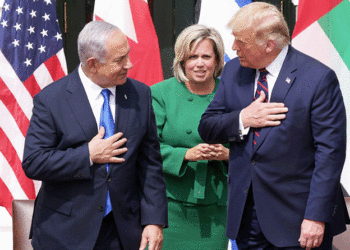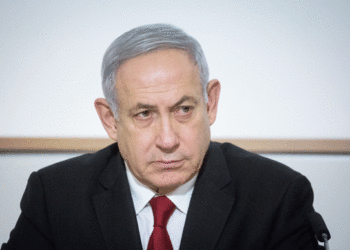The U.S. administration has yet to describe its preferred framework for peace in the Middle East
By RON KAMPEAS
WASHINGTON (JTA) — Seven months into the Trump presidency, Israel and the Palestinians, along with other countries in the Middle East and experts on policy in the region, are still waiting for the U.S. administration to describe its preferred framework for peace there.
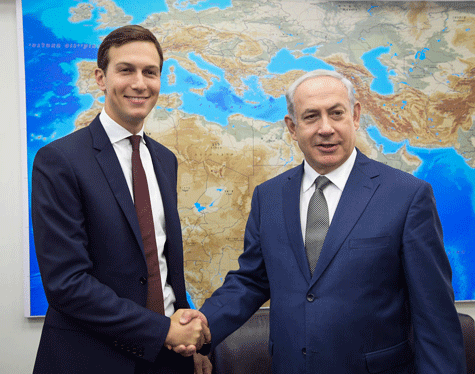
Kushner, who Trump has charged with brokering an Israeli-Palestinian peace deal, arrived Wednesday in Israel for his third visit to the region. He and Jason Greenblatt, Trump’s top international negotiator, and Dina Powell, a deputy national security adviser, held meetings the following day with Israeli Prime Minister Benjamin Netanyahu and Palestinian Authority President Mahmoud Abbas before wrapping up a Middle East tour that the U.S. described as “productive,” according to The Wall Street Journal.
“Something has to come out of this trip that demonstrates that the peace process is not dead and buried,” Aaron David Miller, a veteran Middle East peace negotiator under Republican and Democratic presidents who is now president at the Wilson Center, told JTA. “The whole world is watching. Some sort of event or framework is necessary.”
Husam Zomlot, the Palestine Liberation Organization envoy in Washington, D.C., was more blunt at a meeting earlier this month with reporters.
“We need them to tell us where the hell they are going,” he said.
For its part, the Trump administration does not appear to be poised on the brink of a breakthrough. The Palestinians had hoped for a commitment to two states — Trump in February had retreated from 15 years of explicit U.S. commitment to the outcome. But on Wednesday, as Kushner’s party was landing in Israel, Heather Nauert, the State Department spokeswoman, made it clear that nothing on the two-state front had changed.
“We are not going to state what the outcome has to be,” she said. “It has to be workable to both sides. And I think, really, that’s the best view as to not really bias one side over the other, to make sure that they can work through it.”
The inclination toward caution — leaving the pace of advancement to the parties — is a reaction to the burns suffered by the United States when previous administrations took a more proactive role in brokering peace.
It’s an experience Kushner is keen not to revisit — something he made clear earlier this month in a leaked chat with congressional interns. Kushner rarely speaks in public, and the exchange last month was a rare insight into how he has been approaching the renewal of the peace talks. It underscored how embryonic the administration’s approach was to peacemaking.
“So what do we offer that’s unique? I don’t know,” Kushner said in a recording obtained by Wired magazine. “And we’re trying to work with the parties very quietly to see if there’s a solution. And there may be no solution, but it’s one of the problem sets that the president asked us to focus on.”
Kushner’s remarks — hesitant, if not feckless — were in contrast with the intensity of the Trump administration’s activity at the start of his presidency, said Daniel Shapiro, the Obama administration’s ambassador to Israel from 2011 to 2017. In addition to Greenblatt’s near constant presence in the region and the two visits by Kushner, Trump visited Israel and the Palestinian areas in his first overseas trip as president, and has hosted Netanyahu and Abbas at the White House.
“Trump obtained a significant degree of leverage through his first meetings” with Netanyahu and Abbas, Shapiro said. “That kind of leverage is wasting an asset if it’s not used.”
A perception that has arisen: One of the obstacles to a coherent White House Middle East policy was infighting between relative traditionalists like Kushner and Powell — a Middle East hand who served in senior positions in the George W. Bush administration — and hard-liners like Stephen Bannon, the former White House strategist. Vanity Fair reported this week that Bannon lobbied hard to move the U.S. Embassy to Jerusalem from Tel Aviv, and “pushed a tougher line against the Palestinians than Kushner did.”
Pro-Israel groups that favor a hard line in dealing with the Palestinians lamented the appointment of David Satterfield, a veteran U.S. diplomat with experience in the Middle East, as acting assistant secretary of state for Near East affairs. The Zionist Organization of America worries that Satterfield will bring “unwarranted pressure on Israel.”
ZOA has also labeled Powell, who directed charitable activities at Goldman Sachs after serving as assistant secretary of state for educational and cultural affairs in the George W. Bush administration, as “hostile to Israel.”
If Bannon’s exit from the White House means the administration will adopt a more traditional “honest broker” approach to the Middle East, some suggest that Kushner is likelier to push for talks — and compromise — on both sides.
The ex-negotiator Miller said that didn’t seem likely. Bannon’s preoccupations were elsewhere, he said, and in any case, it’s not as if Kushner and Greenblatt — Orthodox Jews with longstanding ties to Israel, including to its settlement movement — were slouches when it came to defending the country’s interests.
“You didn’t need Steve Bannon to create a huge sort of tsunami tilt in favor of Israeli sensibilities,” Miller said, as opposed to the coolness of U.S.-Israel relations under the Obama administration.
Another factor inhibiting a breakthrough is the domestic tribulations of each leader. Both Netanyahu and Trump are facing the possibility of criminal inquiries into their administrations, and Abbas faces the old internal challenge from Hamas, the terrorist group running the Gaza Strip, and newer ones from younger leaders in his own Fatah movement.
Still, the itinerary of the Kushner trip suggests the nascent stages of a grander strategy, according to Jonathan Schanzer, the vice president of the Foundation for Defense of Democracies. The U.S. delegation, which included stops in Saudi Arabia, Qatar, Jordan, the United Arab Emirates and Egypt.
“There is still interest across the region to explore a regional architecture for peace,” Schanzer said, referring to plans that Trump and Netanyahu have touted in the past that would create the conditions for a broader and simultaneous peace deal among Israel, the Palestinians and other Arab states.
“This idea is that the Israelis and the Arabs could find ways to ensure a better quality of life and some progress toward autonomy for the Palestinians while simultaneously exploring shared regional priorities with the Arabs,” he said, including shared strategies to confront Islamist terrorist groups and contain Iran’s influence. “If done in parallel, it could be productive.”
The time to strike on such a regional approach was now, Schanzer warned, noting that both Russia and China were making inroads into the region.
“You’ve got the Russians effectively commanding the Israelis to pay visits,” he said, referring to Netanyahu’s visit this week to Moscow, which seemed to preoccupy the Israeli leader more than the Kushner visit.
Russia maintains a presence in Syria, and Israel is pressing Russian President Vladimir Putin to make sure that any outcome in that country’s civil war is not to the benefit of Russia’s de facto allies in the conflict, Iran and Hezbollah.
According to Schanzer, “The Trump administration needs to guard this portfolio jealously if they want to maintain control” in the Middle East.











